The Girls in the Getaway Car
An Unexpected Mother-Daughter Road Trip
Roommate horror stories. You either have one or know someone who does. But what about the one that forced the girl to pull the plug? On the WiFi router box that is… And get the hell out of dodge on a road trip back home to Texas her last semester of college?
To be in her presence was like being engulfed by a dark cloud the first few months back. She was blatantly mean to both of us, with her relentless sarcasm and constant need to lash out. Most of the time she isolated herself in her bedroom on the third floor, but on the rare occasion that she came downstairs, she carried negative energy that affected everyone in the room. Emilia and I were initially concerned for her wellbeing as Cindy’s behavior was out of character, so we sat down with her several times to better understand why she was acting this way. She would explain that it’s been hard to find her place at school after being abroad and that leaving the first boy she ever loved there, wrecked her. We’d sympathize with the difficulties she was facing but constructively criticize her habit of acting out because of them. These conversations were tough for all three of us. Many times, Cindy would cry with her head in her hands.
It had been a year since I saw Cindy when she returned to USC due to pandemic travel restrictions and her decision to take a gap year overseas. To say I was excited to be a senior was an understatement, especially after experiencing the quarantine haze and zoom university. I’d be living with my two best friends, Emilia, who I’d grown really close to during covid despite 1,500 miles of distance with her in California and me in Texas, and Cindy. A month before our August move-in date, I admitted to Emilia that I had a sinking feeling that Cindy’s time abroad changed her for the worst, but she urged me it was all in my head. Unfortunately, my gut actually proved me right.
Her remorse would be short-lived, and the toxicity would build back up like the dust on our walls due to our house’s poor ventilation. My one-sided efforts were no use, and the suffocating atmosphere became more unbearable with each day, so I stopped trying for the sake of my own mental health. And our friendship fell apart. In response, Cindy quickly turned angry and then resentful, but it wasn’t until I woke up one morning in January to the sharp sound of clanging dishes that I realized how deep her resentment had grown. It wasn’t the action that bothered me. After all, I knew what I was signing up for when I chose the room on the second floor with the kitchen at the beginning of the year. No, it was her indirect communication that ticked me off to no end.
The house stopped feeling like home because of her presence, so I was practically counting down the days until we could all move out and move on after graduation in May. Little did I know, that after returning from winter break in January, Emilia and I would be moving out much sooner than expected and for reasons no one would ever expect.
Remember how I mentioned that Cindy left her first love behind when she came back from her gap year abroad? His name is Rory. While she was away, we had few conversations because of the time difference but I do recall her telling me that her relationship was complicated, and Rory struggled with commitment issues. Cindy introduced me to him over FaceTime at one point, and he outwardly flirted with me in front of her. She tried to assure me it wasn’t an issue. “He flirts with everyone,” she told me, but I still ended the call with a knot in my stomach, thinking he was toxic and untrustworthy.
Flash forward to early February. I was routinely checking the Ring doorbell for any suspicious behavior since a lot of crime happens in our neighborhood just off campus and we had a personal experience with our bikes being stolen out of the garage recently. I came across a video of Rory dropping off some miscellaneous objects on our porch a couple nights before. A cacophony of alarms and buzzers went off in my head. What was he doing in the states, let alone LA? Why was he dropping things off late at night and for whom? Questions raced through my head. Who was this guy? A quick search on social media led me to discover the unthinkable: a Facebook group followed by well over 600 people, dedicated to Rory with testimonies from girls who’d been sexually assaulted by him first-hand. I scrolled and scrolled through screenshots from dating apps of their conversations with Rory, as he expressed the crude things he wanted to do to them and read several stories from girls about how he unfortunately succeeded in those things. I was in total disbelief about what I was seeing and the knot I had in my stomach after that FaceTime call a year before was back and tightening by the minute. We weren’t dealing with a stupid boy; we were dealing with a sexual predator.
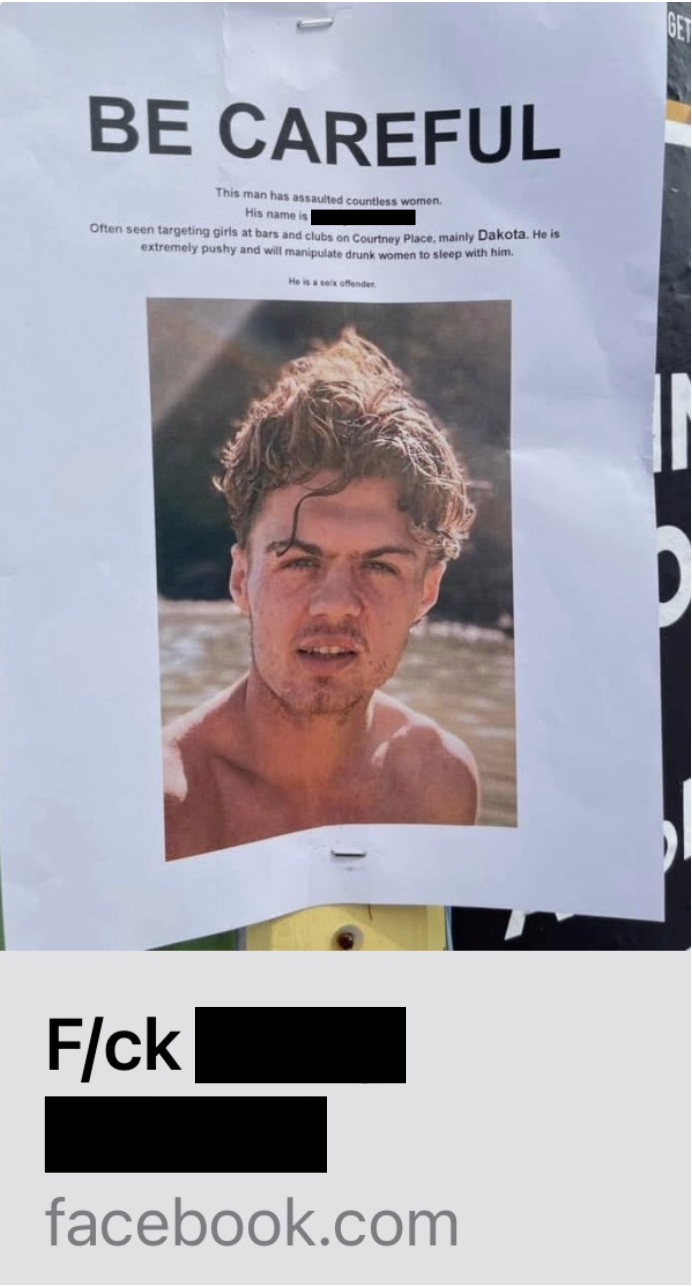
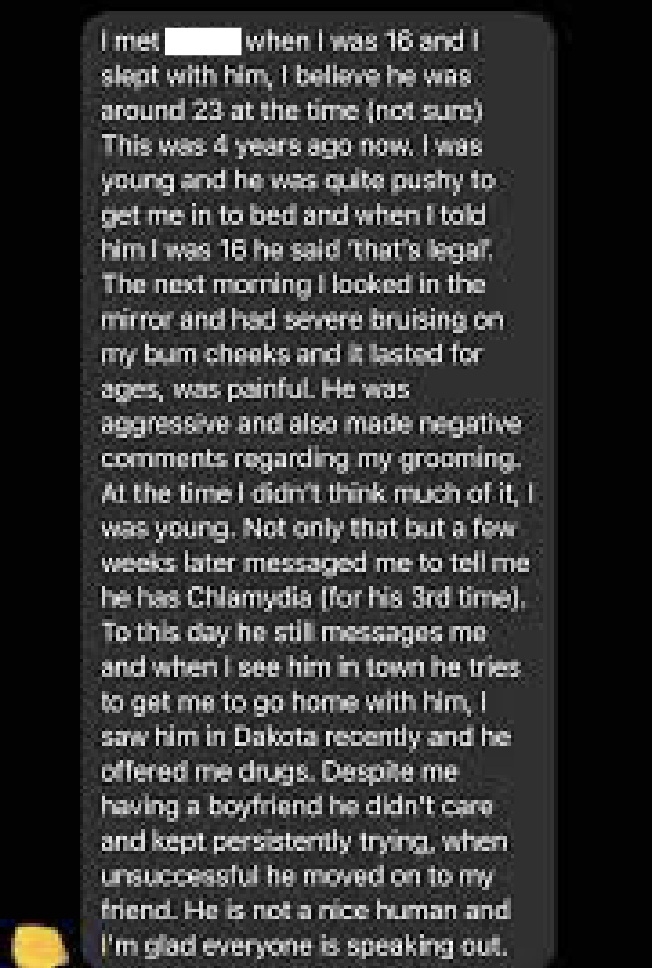
Things began to move fast when I brought the information I’d found to the surface and all our parents got involved. Cindy’s mom admitted to knowing about the Facebook group but despite having never met Rory in person, assured us that the screenshots and stories were fabricated by one girl who was out to get him. “I think it’s been blown way out of proportion and Cindy is the one in potential harm’s way,” she said. That following weekend, Emilia and I happened to be separately out of town, leaving Cindy at the house alone. But she wasn’t alone for long. Despite our apprehensions, she had invited Rory to stay with her that Saturday night and the Ring captured her poor attempt to block the doorbell with her body as she walked him out the following morning. Where was the footage of Cindy bringing him inside? Nowhere to be found. But it didn’t matter, because now we had this indisputable evidence.
From there, the U.S. Department of Homeland Security, USC Department of Public Safety and USC Threat Assessment & Management took over. Emilia and I started tossing around the idea of finding alternative housing but when USDHS informed us their database found that Rory has been deported from the country where Cindy met him, we knew our personal safety had been compromised. The two of us would never sleep in our house again. Not only did Threat Assessment & Management officials advise Emilia and I to immediately move out, but they warned us to only travel in groups to and from class.
Cindy reluctantly filed a restraining order against Rory, but the police told her it would be a difficult case because she willingly invited him into our house just a few days before. In the end, she did file it, and a 100-foot perimeter was placed around our property. Her mom explained that it was so hard for her daughter to betray the one she loves during this time. Apparently, betraying her roommates seemed much easier.

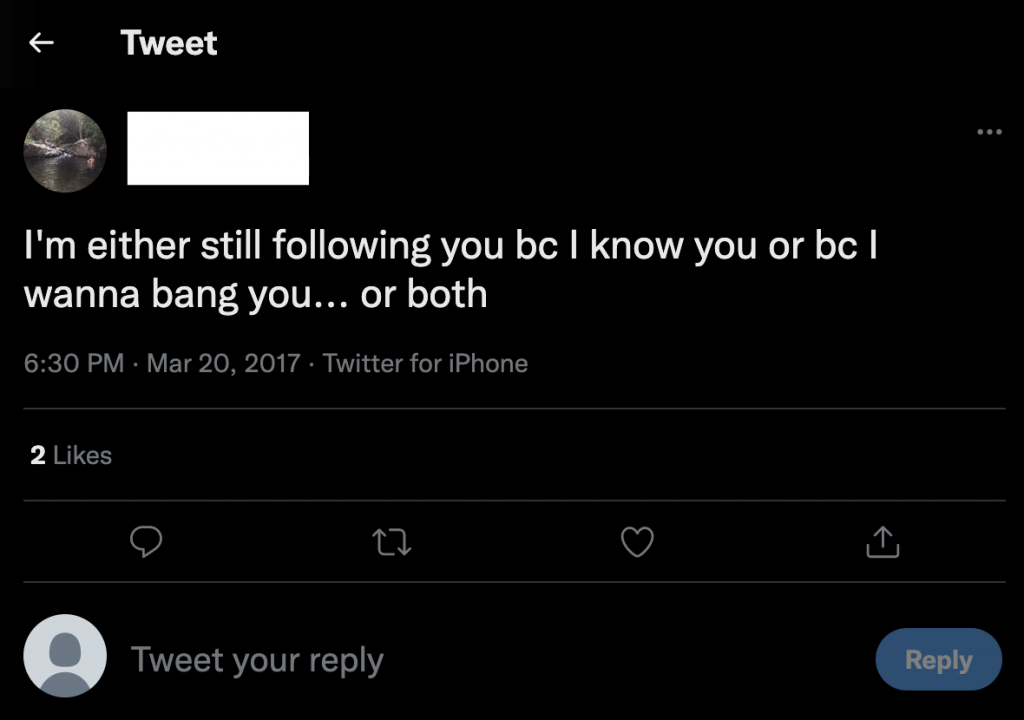
The next thing I knew, my parents were helping me plan my swift escape. What seemed like Mission Impossible required back-and-forth emails with my professors, a full-size moving truck, and a 1,500-mile drive back to Texas with my mom. Life was such a blur as I grabbed armfuls of folded clothes out of my dresser drawers and threw them into duffle bags, stuffing my car to the brim before the movers came to clear the rest of my room. Most students were in the thick of midterm season during that week in February, but I was emptying my room, unplugging the WiFi router box, and handing my keys over to my landlord.
My life had been completely uprooted due to Cindy’s inability to make rational decisions, forcing me to leave behind my friends and finish my last semester of college online back home under my parents’ roof. Although this rough period was a time I desperately wanted to forget, I decided to do just the opposite and make memories with my mom.
I made an Instagram travel account called “trippin.with.merebear” before hitting the road bright and early that Saturday morning. I was dedicated to capturing every trip moment with my mom Meredith, who I naturally call Merebear- one of her many nicknames. From sharing snapshots of loading up my car with suitcases, our Starbucks drive through run, and jamming out to Broadway musicals, we had fun as a mother-daughter duo taking on the road. However, there was a shift in tone when we drove through Wickenburg, Arizona.
When I think of my mom, I think of her in her happy place. She’s in her art room dressed in a vibrant floral blouse and dark wash denim, her chocolate locks at shoulder length, and wearing her classic drugstore berry lipstick- L’Oréal shade 590. Standing with a fine brush in her hand, she concentrates on the composition of watercolor paints on the page below her and wonders what else it needs as she hums to the tune on 89.3 KSBJ, a Christian radio station playing from her phone speaker.
My mom and I are closer than close. Whether it’s life advice, friend drama, or fashion help, we go to each other for everything. Here’s a little bit about my mom. As an only child, she naturally matured fast and started traveling alone on a plane at six years old. Her mother met her on the other side when she landed, of course. My mom was quite the independent and sophisticated kid, she refers to herself as “the little adult”, but there was a dark side to her childhood that made her grow up quicker than most. Her father was an alcoholic and regularly cheated on her mother, even before my mom was born. She tells stories of how she locked her bedroom door at night in fear because she knew her father would stumble into the house drunk when she was asleep or how her and her mother followed him in his car and watched him kiss another woman at her doorstep before going inside her house. My mom’s young eyes saw things firsthand that children should never have to witness.
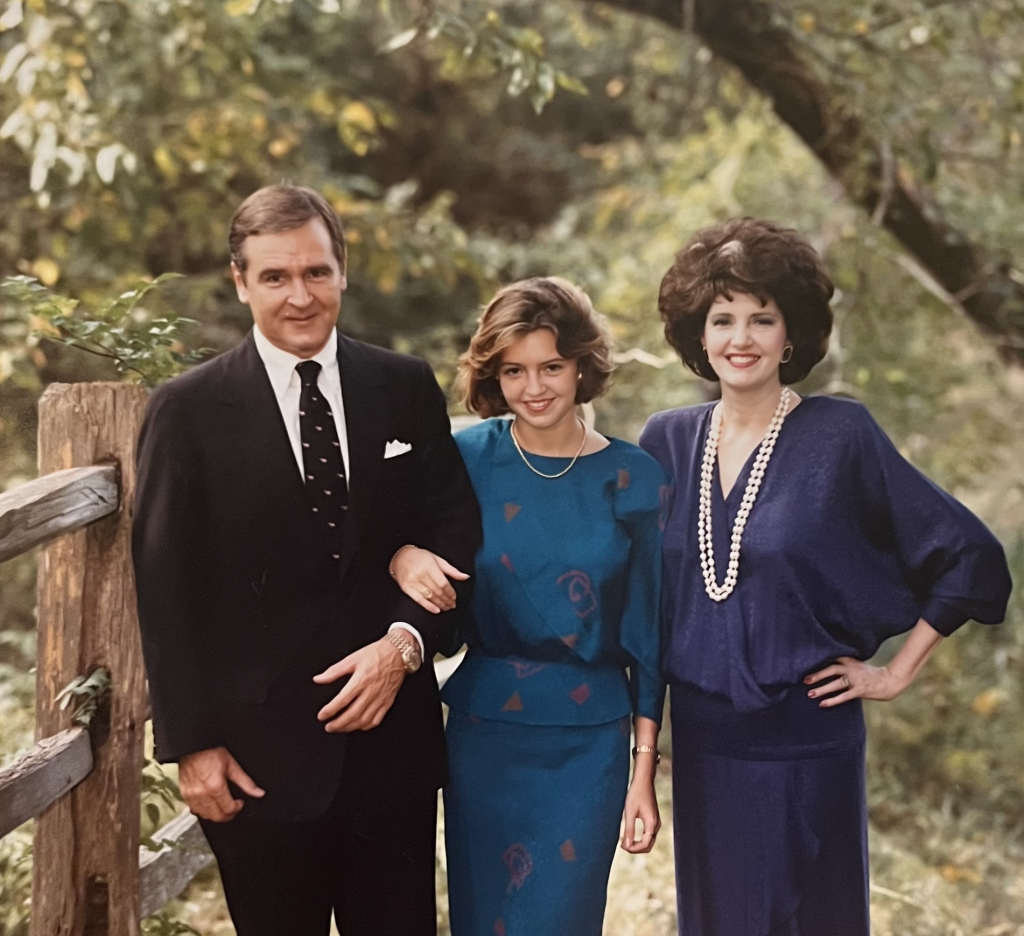
When we arrived in Arizona, we went through a tiny town called Wickenburg which I thought nothing of until a memory clicked for my mom about the place. I decided to turn the camera on so she could share her story. “Back when I was in college, I was a sophomore at Vanderbilt, my mother and I did an intervention on my father… and we sent him to this treatment center called The Meadows and it was located in Wickenburg,” she said. Although I never met my grandfather, I felt like I knew him through my mom’s stories, but I didn’t know about this part. “We were there for family week, and it was to heal as a family… I remember we went into this room and my dad was in a group of people, with other people with different addictions… I got my dad to sit in a chair in the middle of the group and I could space the chairs as far apart as I wanted. I remember it was being able to confront him and tell him about things he had done or said.” She told me how cathartic the experience was among all those people, especially because counselors at The Meadows explained to her that she coped by holding all her anger inside. “I wanted all eyes on him, I remember that. I was just like, ‘gosh, this is the truth, ’ ” she recalled. It was in these moments that I became thankful for the road trip because it brought me closer to my mom than I ever thought possible, and I was looking forward to learning more about her as our trip continued to unfold. At the start of the trip, the situation I was forced to escape was at the forefront of my mind, but with each mile we completed, the pent-up anger I felt inside faded a little more with the dust in the rearview mirror.
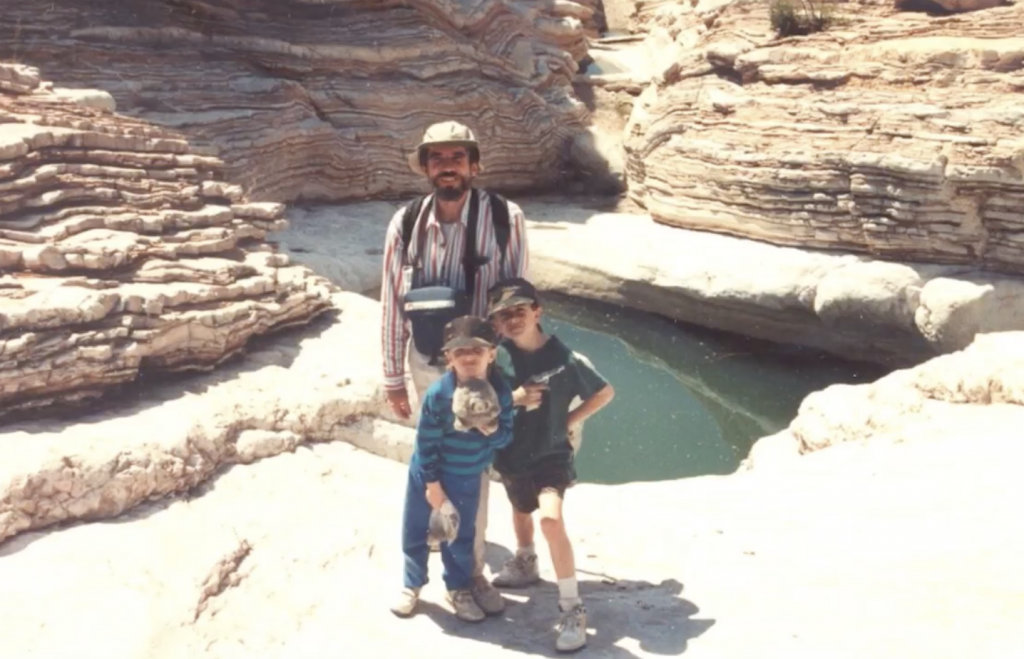
Growing up as a kid in Colorado, Darius Nabors remembers taking annual family road trips to national parks. These outdoor adventures were practically in his backyard with the Rocky Mountains 45 minutes away and Yellowstone being a six or seven hour car ride. His father Murray insisted on keeping up this tradition through his childhood because his father had done similarly with him when he was a kid which even inspired him to serve as a Park Ranger for the first time in the summer of ‘65 and a handful of summers after that. Nabors explained that his family was able to take road trips around the same time every year because his father was a college professor and was given a spring break just like the students.
Flashforward a few years into the future. Nabors went on to attend the University of Virginia, better known as UVA in the heart of Charlottesville, VA. It wasn’t until he got to college that he realized that not everyone took family road trips, let alone considered them vacations like he did. “It’s a pretty cheap vacation to go see some beautiful places in the country… but sometimes road trips aren’t the thing that super wealthy families do. In a way a road trip is like, I don’t know, a great American equalizer,” he said. After completing his undergraduate degree, he took a job working at his alma mater. Nabors was at the cusp of 30 years old when the realization struck him one day that he had only been to 19 out of 59 national parks, so he started to do the math. “In the working world, you get your 20 days of allotted vacation and between friends’ weddings and taking a Friday here and there, your vacation quickly gets eaten up. I wanted to visit all the national parks and I was like, ‘It would take me 40 years if I took one week of vacation and went to each park each year, ’ ” he explained. It was even crazier for him to consider the fact that he would be close to his father’s age in his early 70s, if he were to follow that track and envisioning himself with a hurt back and achy knees attempting to explore these places didn’t sit well with him. “What if I just quit my job and go to all the national parks?” Nabors asked himself. Little did he know this decision would change his life forever.
In 2015, he started working full time at UVA doing fundraising and took a second job bartending a few days a week to make extra money to pay for the road trip. He thought there was no time like the present to do something like this, especially with the 100th anniversary of the National Park Service approaching. Books like Blue Highways by William Least Heat-Moon and Travels with Charley by John Steinbeck served as inspiration as he planned his trip itinerary for six months, to visit 59 parks in 59 weeks. However, he had mixed feelings about A Walk in the Woods by Bill Bryson as he didn’t like the narrative of the protagonist turning to the road after experiencing a midlife crisis triggered by a divorce from his wife. “It was kind of an escapism thing, which isn’t a bad thing… [but] I was like, ‘you should go to the road and you should go to the woods before those things happen so that you can hopefully prevent them from happening, ’ ” he told me. Nabors wasn’t unhappy with his present life. He didn’t hate his job and he wasn’t running away from a relationship. What he saw was a gleaming opportunity and a ticking time bomb. “These are really beautiful places and I don’t want to wait until I’m too old to enjoy them.”
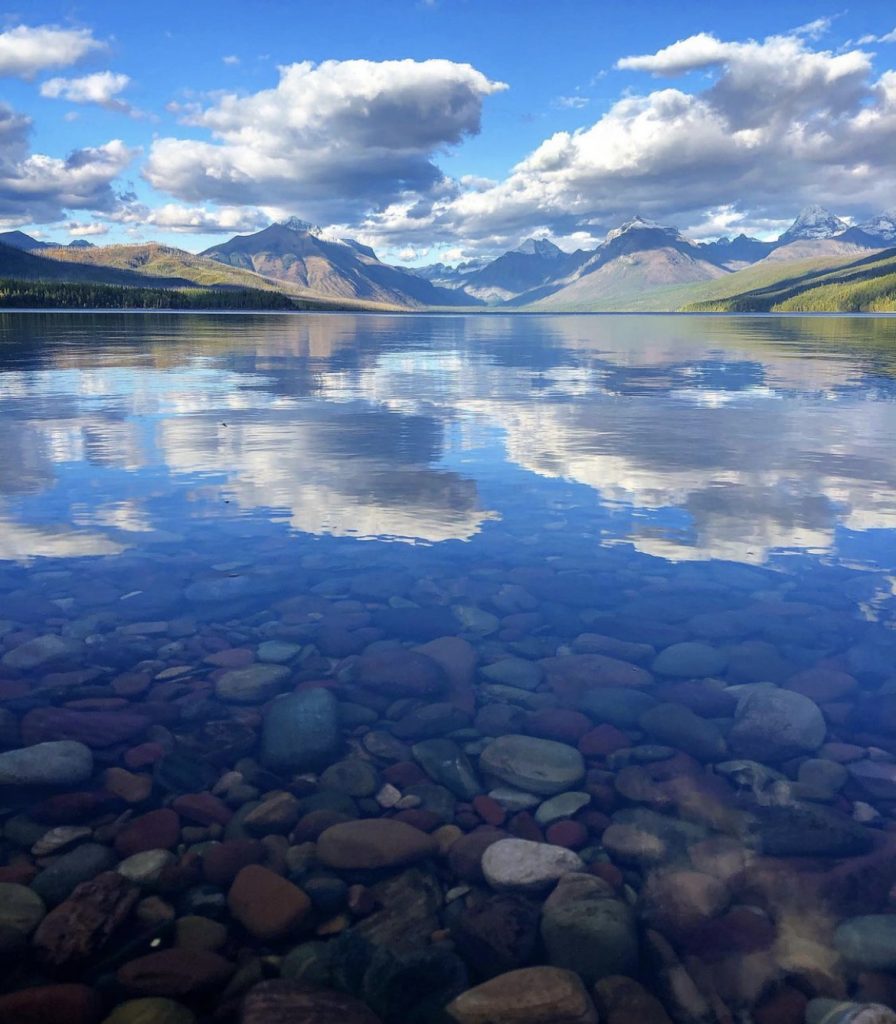
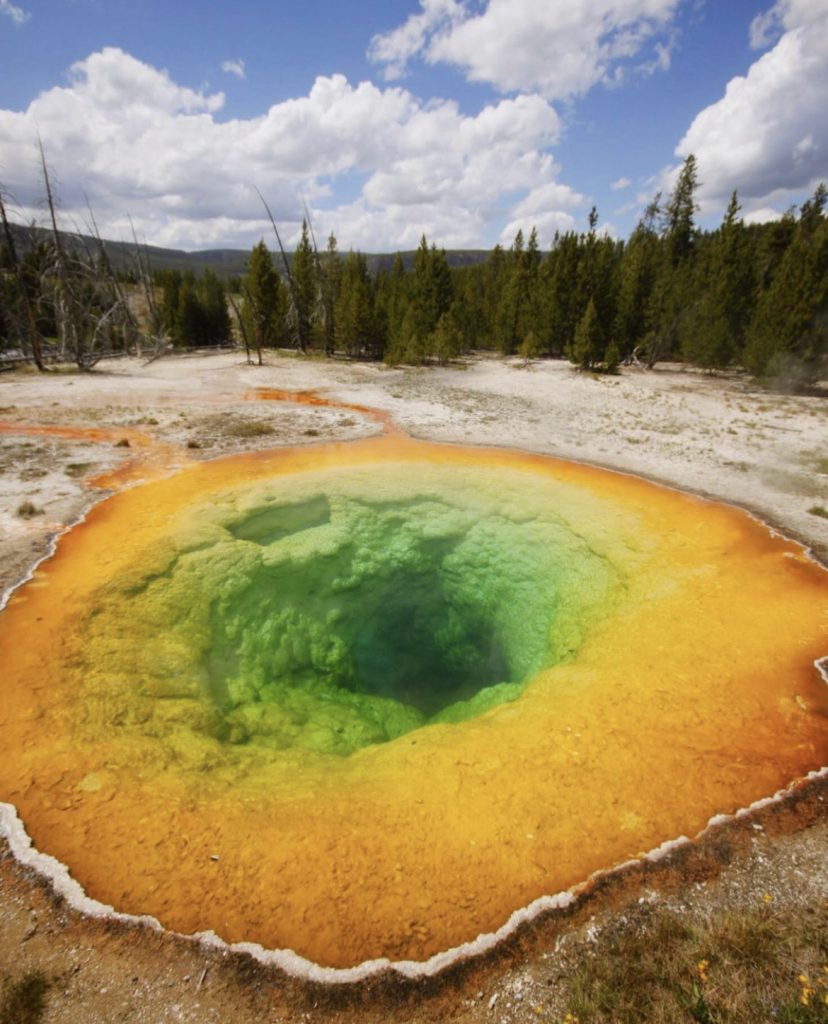
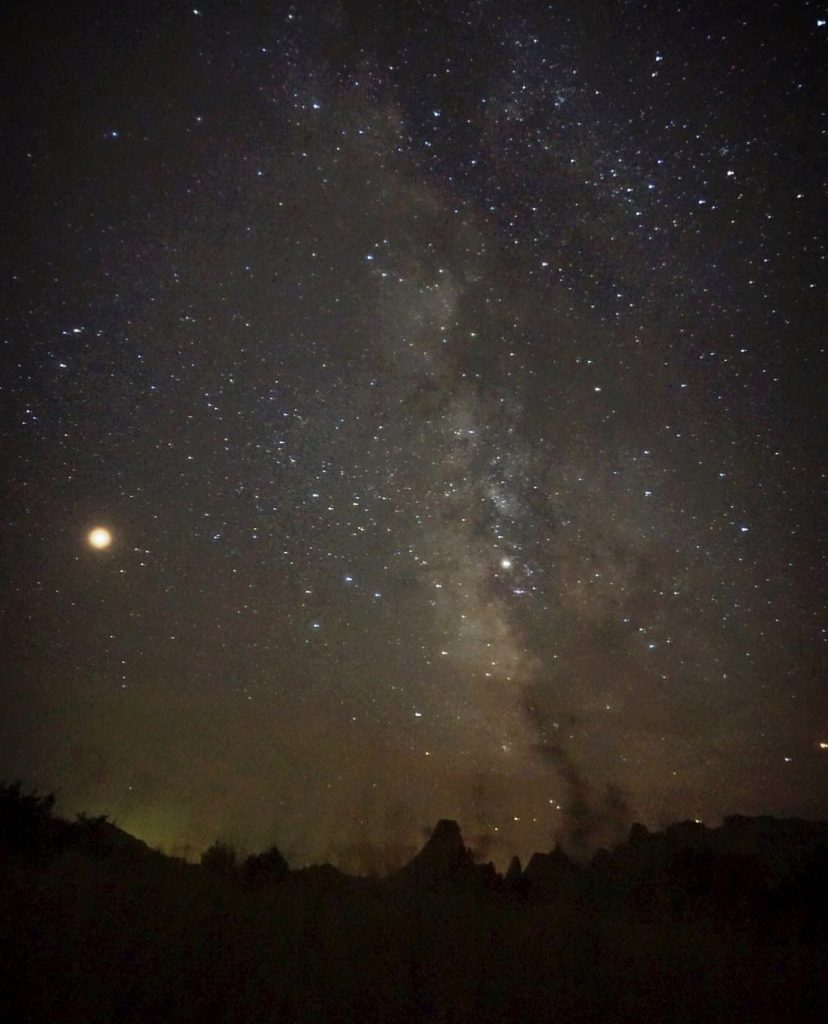
Nabors had received over $11,000 in crowdfunding from family and friends so he felt that he should document his travels in return for their donations. In the digital age we live in, he turned to his Instagram account @dariusnabors with roughly 800 followers, changed his bio to “59in59: National Park Road Trip,” and started capturing moments in his ever changing environment. Little did Nabors know that he would receive media coverage along the way from sources like Good Morning America, PBS, and NPR, as well as gain thousands of followers fascinated by his mission. “We had a bunch of crazy stuff like that happen. I would go to schools, elderly homes, and REI stores to give talks about national parks and the importance of protecting these places,” he said. When he came off the road trip, he was even given the opportunity to do a Subaru commercial with his father and his brother, which focuses on a sentimental element of family history that #59in59 brought to light like never before, strengthening their father-son relationship. You see, his father was told he had cancer and wouldn’t survive it in the midst of raising his two sons, so he started to truly live life like he was dying. “While he was diagnosed with cancer, he wrote this journal to my brother that was like, you know, ‘oh, I hope when you guys get older, you’ll enjoy national parks and want to spend time there, ’ ” said Nabors. The ironic part is that he had no idea about the existence of this journal, packed away in a storage box, until he was at the halfway point of his road trip and back home for Christmas sleeping on his parents’ couch. His father expressed in entries how much he would always love his sons even when he was gone and recounted what a pleasure it was to take them to national parks when they were younger. “He hoped we enjoyed our visits to Rocky and hoped we’d take our kids there and told us the story of our trip to Arches,” Nabors told me. It was wild to consider that along his 59in59 journey, Nabors was back exploring some of the parks his father had once taken him to 25 years or so before. Flooded with memories on each page, he couldn’t help but get emotional as he read through the journal because it helped him understand his own story better. “I have this deep family connection to the parks and that’s my connection with my dad… For a long time, I never told people that part of the story and once they started to hear that, my love of parks started to make a little bit more sense to them.”
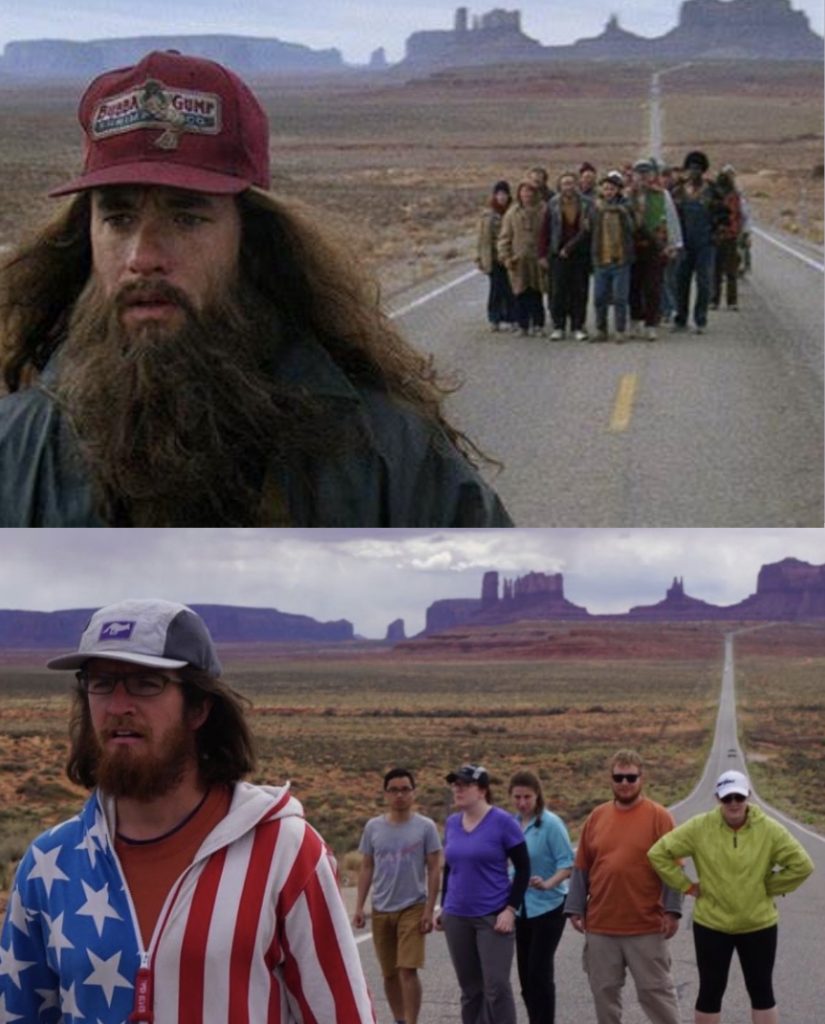
While interviewing Nabors, we connected on the fact that a road trip brought us closer to a parent than we ever imagined. If it wasn’t for 59in59, Nabors wouldn’t have discovered his father’s journal, arguably a key part of the foundation of their relationship and the piece he was missing to understand who he is as a person and his purpose in life to travel, speak, and motivate. On a smaller scale, my three day escape allowed me to pin another dot about the mystery that is my grandfather and paint a clearer picture of who my mother is considering the trials she went through with him. Nabors told me, “[road trips] open these doors to view your family in ways that you didn’t know… and by that, you learn more about who you are.” If you were wondering, Nabors did indeed complete the road trip he set out for in his final 59th week. He ended up exactly where he planned in his itinerary on August 16th, 2016- back in Virginia at Shenandoah National Park, just nine days before the 100th anniversary celebration of the National Park Service. Through his experience he found that, “learning how you tell your story, being honest, and being vulnerable matters [because] the more authentic you are, the more that people connect with you.” The road is a powerful thing, some would say it’s a healer but why is that?
Steve Lagerfeld led The Wilson Quarterly in Washington D.C. as editor for 15 years and since then, he has had scholarly works published in The Wall Street Journal, Atlantic Monthly, and The New Republic just to name a few. He wrote an article in the summer of 2019 for The American Scholar titled, “The End of Driving” which takes a deep dive into the wonders of the road but how autonomous cars might compromise this endeavor. “Driving is a form of empowerment. Step on the gas, the car responds. Turn the wheel, the car turns. Step on the brakes, it slows. There aren’t many connections in life that have such satisfying directness and simplicity,” Lagerfeld explained. Ever since I can remember, my mom has always been insistent on driving if the situation allows because she likes to be in control behind the wheel and I think that spurs from the lack of control she experienced when she was young. My mom did everything in her power to get me out of a threatening situation as the tapes from her childhood played in her head. In an interview with Lagerfeld he said, “driving is a lot about what happens in your mind. I mean, it’s a mental state. On a car trip, you have the sense of motion, changing scenery, which is stimulating, [and] you have this feeling of control.” It was a process to heal for my mom and I but traveling by car was the cure, allowing us hours at a time during those three days to share and shed our emotions, which blended into the desert landscape behind us. Looking back on our road trip, we couldn’t imagine boarding a plane with the added weight of such heavy emotional baggage. We needed three days of travel to decompress, not three hours. “On a plane, you wouldn’t really have had the opportunity to be alone or be together [and] you wouldn’t have had that atmosphere of intimacy because you’d have to worry and think about all the other people around you,” Lagerfeld said. Instead, we were packed tightly into my car with all my belongings and our private cocoon gave us the chance to comfort each other, heal, and grow before making it home to my new reality for the foreseeable future.
“In my 53 years, I’ve come to relate to the road as an opportunity to be with nature as it passes by in the window. It helps you gain a unique internal perspective as it cleanses your mind, body, and spirit. As an artist, the natural world around me has inspired the work I do. I’ve found throughout my life that you need that space, time, and perspective to flush any sort of toxicity out of your system,” my mom said. But for me, I left a place I considered home since the beginning of the fall semester. After a long day of school I’d always return to that apartment near campus and if you stay in one place long enough, it becomes your home. What I found was that when things started to go south with my ex-roommate and toxicity crept in, the feeling of home became foreign and cold in that living environment. On the road trip alongside my mom, I started to analyze that peculiar feeling as the space itself hadn’t changed. I watched the movers box up my entire room and before I knew it, a bed frame hiding dust bunnies on the floor was the only thing left. I stared at the empty space for a long time and then I thought to myself, “home isn’t about the walls surrounding you and the roof over your head, that’s simply a social construct. No, home is about the feeling. It’s the love, support, and security you feel there.” I felt more at home in the car with my mom than I ever did in that apartment.
___________________________________________________________
ABOUT THE AUTHOR
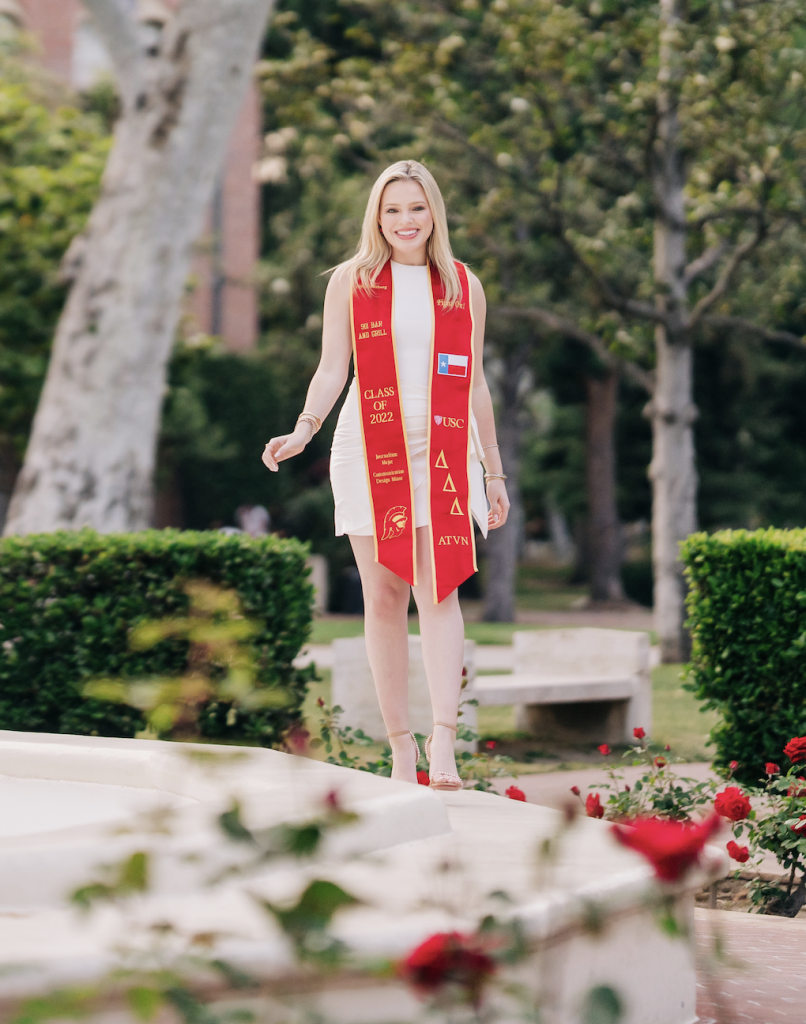
Elizabeth Barineau is a senior with a Journalism Major and a Communication Design Minor at USC. She’s heading to Dallas, TX after graduation to pursue an internship at a marketing/ communications agency called LDWW. This coming August, she’ll be taking on a new role as a “dog mom” and welcoming her Labradoodle son named Ferris to her family!